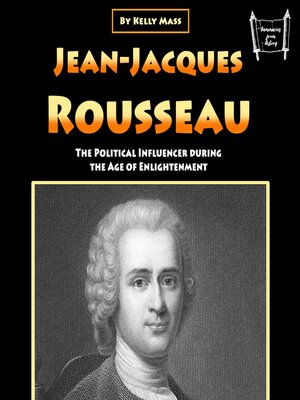Jean-Jacques Rousseau
audiobook (Unabridged) ∣ The Political Influencer during the Age of Enlightenment
By Kelly Mass

Sign up to save your library
With an OverDrive account, you can save your favorite libraries for at-a-glance information about availability. Find out more about OverDrive accounts.
Find this title in Libby, the library reading app by OverDrive.



Search for a digital library with this title
Title found at these libraries:
| Library Name | Distance |
|---|---|
| Loading... |
Jean-Jacques Rousseau, born in 1712 in Geneva, Switzerland, was a philosopher, author, and composer whose work had a profound impact on the intellectual and political landscape of the 18th century. He is best known for his political philosophy, which laid the groundwork for many of the principles that influenced the Enlightenment and later shaped the French Revolution. Rousseau's ideas on the nature of society, individual liberty, and the role of government continue to be highly influential in modern political thought.
Rousseau's Discourse on Inequality (1755) critiqued the effects of civilization on human beings, arguing that the growth of social institutions and private property led to the corruption of natural human freedom and equality. This work challenged the prevailing ideas of social progress and inspired many of the revolutionary ideals that underpinned the French Revolution two decades later.
Another of Rousseau's most influential works is *The Social Contract* (1762), in which he presented his theory of government. Rousseau famously declared, "Man is born free, and everywhere he is in chains." In this text, he explored the relationship between individuals and society, advocating for a political system based on collective sovereignty where the general will of the people would guide decisions, a concept that would later influence democratic governance.







